Africa eyes vaccine ‘independence’ as new pop-up factories make debut
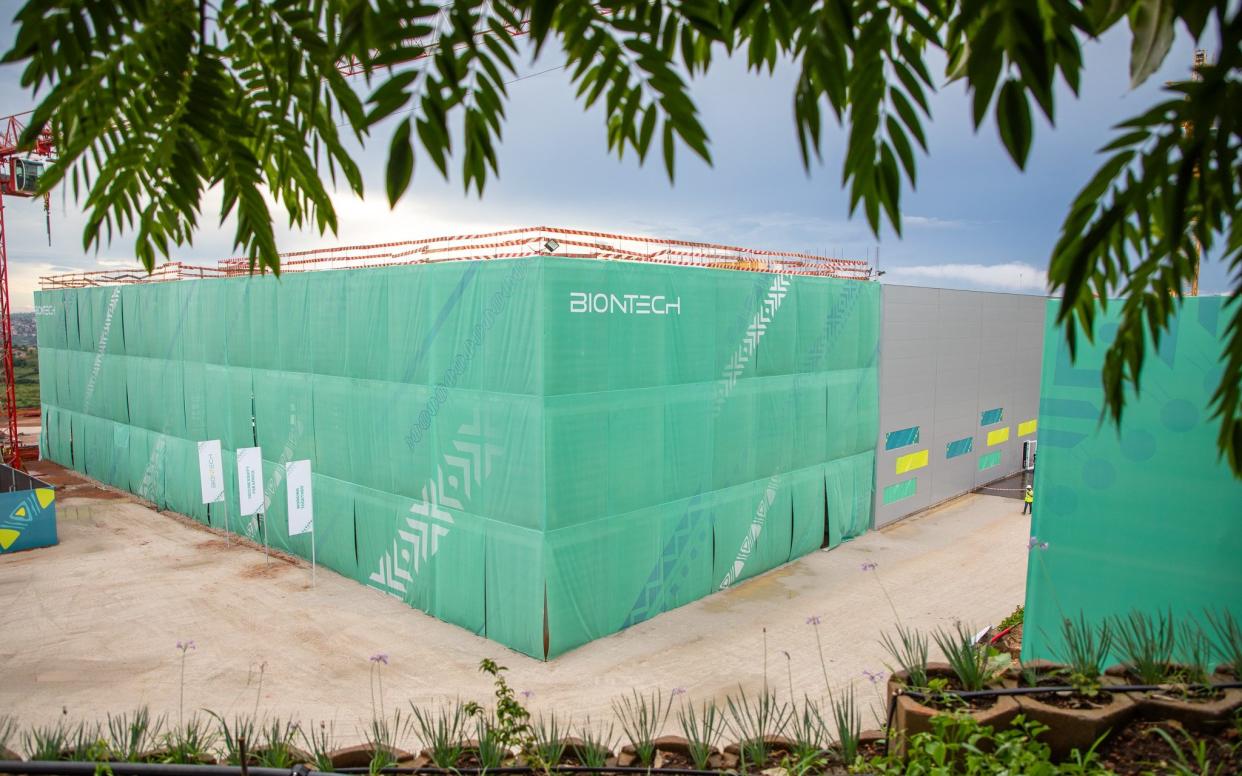
The stack of gleaming, pristine shipping containers could be in an industrial hall anywhere in the world, but outside are the lush green hills of Rwanda’s capital.
The six white units are bolted together at a new production facility in Kigali, to form a ground-breaking vaccine factory.
Tens of millions of doses of jabs are eventually expected to roll off this production line, potentially one day protecting against some of the continent’s worst infectious diseases.
The containers flown here earlier this year by vast Antonov cargo planes are the first milestone in plans to one day build a network of portable, ‘modular’ vaccine factories.
By squeezing a high-tech laboratory into easy-to-transport-and-assemble containers, the scheme aims to set up production almost anywhere in the world.
Sierk Poetting, chief operating officer of BioNTech, the German biotech firm behind the venture, said it represented “the idea of revolutionising the manufacture of pharmaceuticals”.
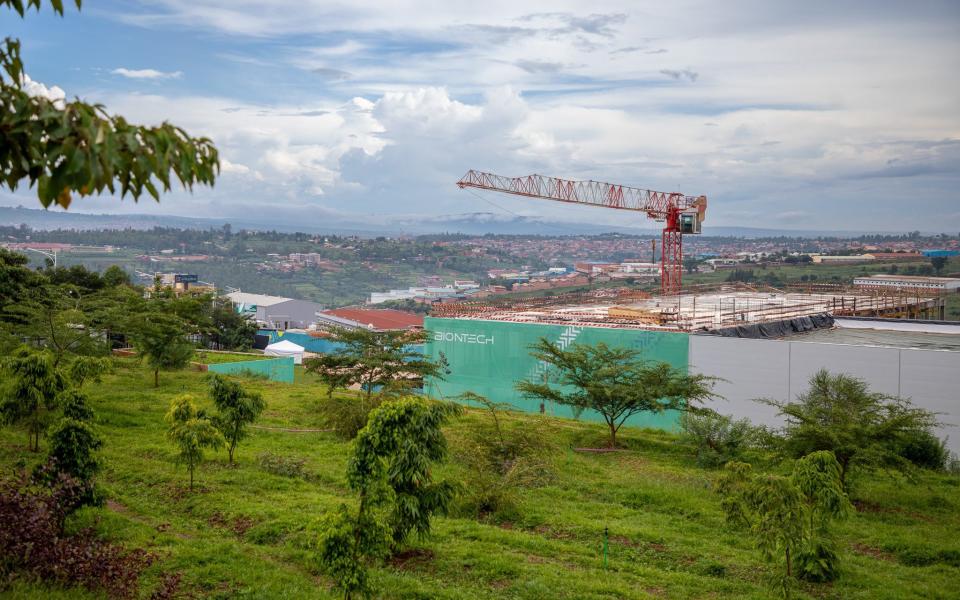
The containers “are designed to provide consistent manufacturing processes that could be applied globally and could be tailored to regional needs”.
Yet even more for Rwanda and other African nations, they also offer the chance of manufacturing vaccines on their own soil, rather than relying on imports and handouts from rich countries.
The pitfalls of Africa’s reliance on the kindness of strangers to supply vaccines were painfully exposed during the Covid-19 pandemic.
Lofty international declarations to share vaccines fairly unravelled when set against domestic political considerations during a health crisis.
Rich countries stockpiled vaccines, while India, the world’s vaccine-making powerhouse, banned exports and kept jabs to protect its own citizens.
The Covax vaccine initiative, which was supposed to bridge the gap for the developing world, found itself outbid or otherwise edged out.
Africa found itself at the back of the queue.
The lesson African governments learned was that they can only guarantee future vaccine supplies if they have the wherewithal to make their own.
Dr Jean Kasaya, chief of Africa’s Centres for Disease Control and Prevention (Africa CDC), frames the continent’s ability to make its own vaccines as nothing less than a “second independence”.
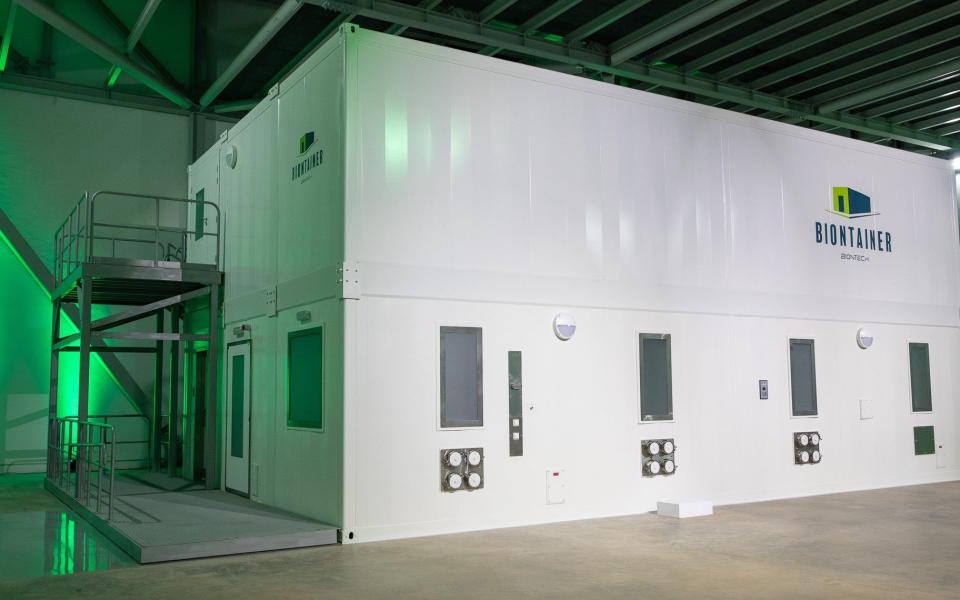
Earlier this month, he said there was a “need for vaccine manufacturing capacity in every global region as an insurance policy against the type of vaccine nationalism that saw Africa deprived of Covid-19 vaccines in the early days of the pandemic.”
He went on: “Building sustainable African vaccine manufacturing is a non-negotiable objective of Africa.”
Currently only one per cent of vaccines used in Africa are made on the continent. The African Union wants that to jump to 60 per cent by 2040 – and schemes like BioNTech’s new Rwanda facility could play a role.
BioNTech’s container labs use the same mRNA technology behind the firm’s hugely successful Covid-19 jab produced with Pfizer.
This vaccine platform delivers purpose-built genetic coding, messenger RNA (mRNA), which, in the case of the Covid virus, instructs the body to recreate a protein spike seen on the outside coat of Sars-CoV-2.
Recognising what appears to be a foreign – but completely harmless – object, the body mounts an immune system and learns how to fight the virus. The memory of this encounter is retained and keeps a vaccinated person protected against the real Sars-CoV-2.
Professors Katalin Kariko and Drew Weissman, who developed the technology that led to mRNA vaccines, shared this year’s Nobel prize for medicine.
Covid-19 may have popularised the technology, but BioNTech now has early stage trials underway for mRNA vaccines to counter several other infections, including two of Africa’s biggest killers.
A clinical phase 1 trial for a tuberculosis vaccine is underway in South Africa and malaria vaccine candidates are being evaluated in America. Another early phase trial for monkeypox, or Mpox, vaccine candidates is underway in the United States and UK.
Inside the ‘modular’ lab
If such vaccines are successful, they may one day be made in factories like the new one in Kigali.
The new BioNTech plant in a Kigali industrial estate stretches across eight acres but the heart is a concrete hall containing the modular lab, or what the firm calls its BioNTainer.
Modelled on a prototype assembled in the company’s German plant, in Marburg, the lab assembled in Kigali this week is the first of its kind built in Africa.
The first unit, made of six containers stacked three on three, will create the mRNA active ingredient. Another unit, to be assembled alongside another eight containers early next year, will wrap the mRNA molecule in a protective lipid shell. The formulation will then have to be filled in vials elsewhere.
The units are airtight and kept at higher pressure than the surroundings to make sure no contamination gets in.
They may be sealed, but they are not self-contained. The plant needs electricity and carefully regulated supplies of clean water and air.
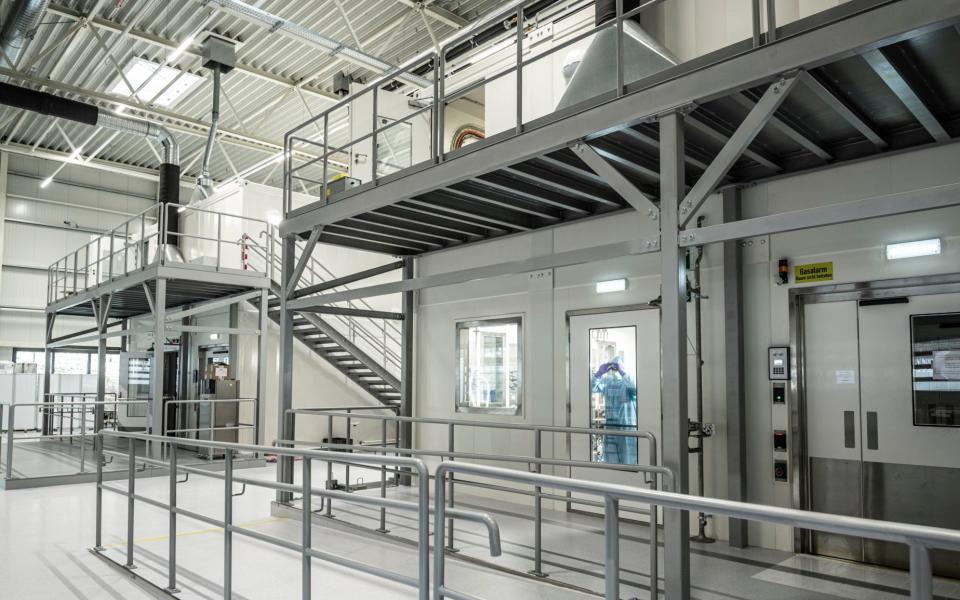
Just how many doses could be produced when the labs are up and running depends on the specifics of the vaccine, but if it was pressed into making Covid-19 jabs, it could make 50 million per year. While that is small compared to the four billion produced annually at BioNTech’s Marburg plant, it is still a significant number.
However production is still some way off. Next year will be taken up with finishing and installing the other containers. The first batches made in 2025 will then need to be used to check quality control.
BioNTech officials are reluctant to predict when jabs will be rolling off the production line ready for injection. They stress what is learnt in Rwanda will allow them to set up labs elsewhere more quickly though.
Dr Özlem Türeci, chief medical officer and joint founder of BioNTech, said: “The beauty of the BioNTainer concept is that this is already providing a blueprint and once this blueprint is mature enough, we can copy-paste in other African countries.”
The number of VIPs turning up this week for the inauguration was a measure of the interest in the issue. As well as the Rwandan president, Paul Kagame, there were also the presidents of Ghana and Senegal, the prime minister of Barbados and the head of the African Union.
Talks are underway to decide where BioNTech might set up other plants.
But how much sovereignty do these modular factories actually provide for their hosts and their vaccine supplies?
The company retains its intellectual property (IP), but when push comes to shove, the host country polices distribution and export.
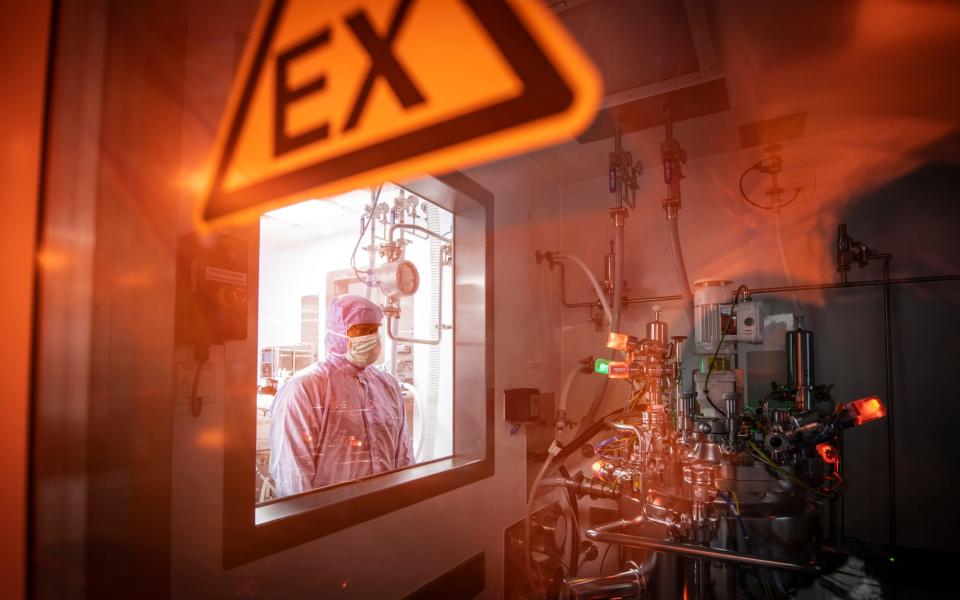
That would mean that in another pandemic-like crisis the host could use its export controls to have the final say on what was to be done with the vaccines, potentially keeping them for its own citizens, or neighbours, just as India did in 2021.
Prof Pedro Alonso, BioNTech’s head of global health, said: “When you export, it’s the country that gives you a licence to export and where you are exporting to, so they do have control.”
That is also likely to give the host nation some say in which vaccines any factory produces, he predicted.
Vaccine sovereignty also needs more than a factory. Public health officials say that for a country to stand on its own two feet in vaccine production, it needs a whole ecosystem of different parts. That ranges from qualified scientific staff and a research base, to robust national regulatory systems, to readily available medical and chemical supplies.
Dr Türeci and her colleagues hope the new modular factories can form the seeds of a wider mRNA biotech industry in Africa.
BioNTech has so far spent $100 million on the venture, out of a total budget of $150 million.
Asked how the company will make its money back, she says: “We should not ask the question why. Many have asked the question: why should we do it if it does not, according to current standards, have a robust conventional business model.
“Because this is the reason why we still have a situation where the TB vaccine which is used here is 100-years-old. The first Malaria vaccine needed 30 years to be developed. We are coming with a different stance. We have asked ‘Why not,’ so let’s start and work with all the stakeholders who want to make it happen.”
Protect yourself and your family by learning more about Global Health Security.

